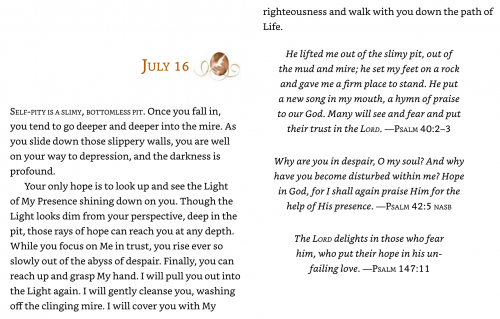Thursday, July 16, 2020
Dorothee Soelle (1929-2003) is an example of a contemplative who finds she must take action. I met her once in Germany at the Kirchentag (an assembly sponsored by the German Evangelical Church) and was deeply impressed. She was a first-rate scholar and noted theological author. I’ve been especially influenced by her book The Silent Cry: Mysticism and Resistance. For today’s meditation, Kerry Walters and Robin Jarrell describe this contemplative activist.
Society’s conventional image of a mystic is that of a person who withdraws from the world in order to journey inward. . . . The mystic is stereotyped as a guru sitting in splendid isolation on a mountaintop, utterly unconcerned with the world’s affairs.
But theologian Dorothee Soelle [Sölle], herself something of a mystic, argued that there’s actually little accuracy in this portrayal. Far from being withdrawn from the world or indifferent to the suffering that goes on in it, the mystic is uniquely motivated and qualified to respond to social and economic injustices. Genuine mystics, like Buddhist bodhisattvas, don’t renounce the world for the sake of a private spiritual illumination. Rather, they use the enlightenment they’ve achieved to do something about the world’s ills.
The reason for this, says Soelle, is that mystics have been liberated from the three powers that typically hold humans in bondage: ego, possession, and violence. They recognize that the standardly accepted division between I and not-I is an artificial one born from overvaluing oneself and competing with others for possessions . . . [which] in turn sets the stage for the “onset of violence.” But the genuine mystic understands that his or her connection with the divine is likewise a connection to all other humans and, indeed, to all of creation—a relationship, as Soelle said, that “borrows the eyes of God.” [1] Patterns of opposition and resistance bred by the division of I and not-I collapse to be replaced by ones of mutuality and community. Violence becomes obsolete, because the conditions necessary for its eruption disappear.
Soelle became interested in questions of religion and politics at an early age. She grew up under the Nazi regime and, like many Germans of her generation, never got over the shame of belonging to a nation that willingly collaborated with mass murderers. She was especially worried by the acquiescence of so many people who claimed to be Christian, and eventually concluded that part of the explanation was that they had compartmentalized their faith, transforming it into a private and “otherworldly” thing. Convinced that such privatization is a perversion of faith, Soelle worked as a theologian to demonstrate the social responsibility of religion and as an activist to put her theology into practice. She became one of the Cold War’s leading anti-nuclear voices, a dedicated opponent of both [U.S.] involvement in [the] Vietnam War and Soviet-style communism, and a proponent of liberation theology. The spiritual fuel of these activities was her conviction that the mystical worldview is revolutionary enough to resist “powerful but petrified institutions” that trade in oppression and violence. Consequently, her “most important concern” was to “democratize mysticism” so that society might be truly democratized as well.
